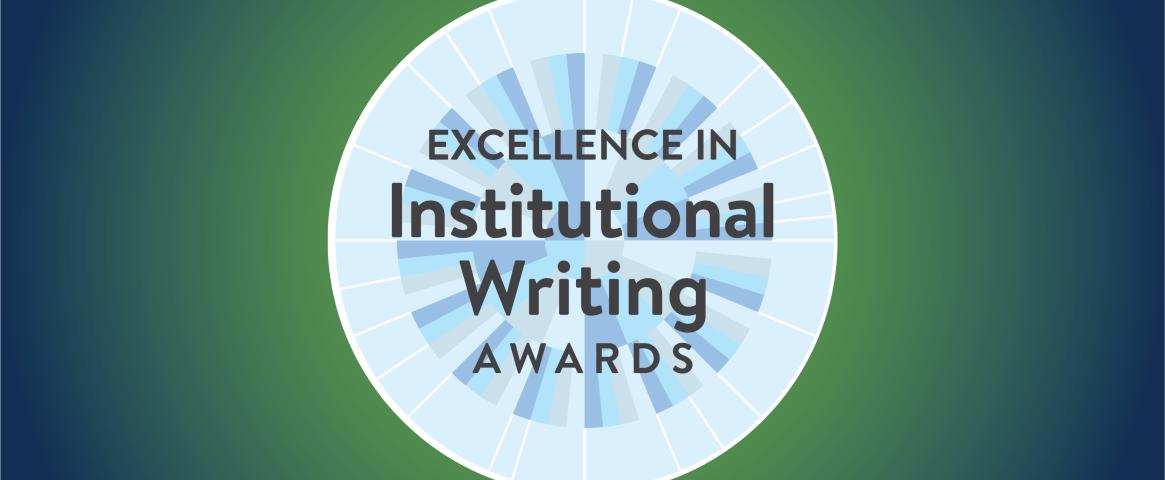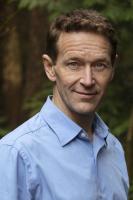The National Association of Science Writers and its Awards Committee are pleased to announce the winners of the 2023 NASW Excellence in Institutional Writing Awards (EIWA):
- In the Long-Form category: “The Demon River” by freelance journalist J.B. MacKinnon, Hakai Institute senior editor and story producer Tyee Bridge, Hakai Magazine senior editor Serena Renner, and Tula Foundation web developer Jeremy Latham for the Hakai Institute, a part of the Tula Foundation
- In the Short-Form category: “This Geneticist’s Goal: Cure the Disease That Runs in His Family” by Alisson Clark, assistant director of research communications at the University of Florida, for UF's Explore magazine.
The EIWA winner in each category will receive or share a cash prize of $2,000. The 2023 NASW Awards will be presented on Saturday, Oct. 7 in Boulder, Colo. as part of the ScienceWriters2023 national conference. Follow hashtags #SciWri23 and #SciWriAwards on social media for ongoing awardee celebrations.
Praise for the 2023 EIWA Long-Form Category Winner: “The Demon River” written by J.B. MacKinnon and produced by Tyee Bridge, Serena Renner, and Jeremy Latham for the Hakai Institute, recounts the 2021 flooding of the Nicola River, located in southwest British Columbia. Commenting on the story, the judges wrote: “A vividly written and thoroughly reported examination of the devastating impacts of an atmospheric river rainstorm in rural British Columbia, this piece expertly combines environmental journalism with gripping narrative storytelling. MacKinnon weaves together natural history with the science of climate change-driven extreme weather while still maintaining focus on the deeply personal impacts for those who live along the Nicola River, including Indigenous peoples.” The judges also highlighted that the story’s rural setting and emotional subject matter could make it “a particularly effective piece of science writing for reaching diverse audiences, including climate skeptics.” Praise for the 2023 EIWA Short-Form Category Winner: “This Geneticist’s Goal: Cure the Disease That Runs in His Family” was published in Explore magazine, a University of Florida Research publication. “Alisson Clark's story draws the reader in with its intriguing headline,” the judges stated. “What follows is a compelling feature that balances the description of University of Florida researcher Eric Wang's deeply personal motivation with detail about the scientific challenge he has taken on. Readers come away from the piece understanding the genetic basis of myotonic dystrophy, along with current efforts to understand and treat it.” They congratulate Clark on her ability to show the reader “how science actually gets done” and for “lending immediacy to the story with reflections from Wang on his father, who is living with the disease; comments from an outside researcher Wang contacted more than a decade ago when embarking on his quest; and the perspective of a grad student in Wang's lab.” As part of a university publication, “the final product reflects extremely well on the institutions and funders,” the judges wrote, “but Clark's journalistic touches make the story just as suitable for an independent media outlet.”In addition to the 2023 EIWA winners, the judges recognized two other entries in the Long-Form category with honorable mentions:
- “Bringing Arsenic-Safe Drinking Water to Rural California” by Kara Manke, science writer and media relations at the University of California, Berkeley, for the Berkeley News website.
- Selections from “The Science Life” by Devin Powell, Matteo Farinella, and the Communications Team of Columbia University’s Zuckerman Institute.
First granted in 2018, the NASW Excellence in Institutional Writing Awards were established to recognize high-caliber, publicly accessible science writing produced on behalf of an institution or other non-media organization. Entries for the next awards cycle, recognizing material published or broadcast in 2023, are due February 1, 2024. Nomination forms will be available at www.nasw.org/excellence beginning December 2023.
All NASW awards strive to showcase timely coverage and exemplary work, particularly those by underrepresented creatives tackling diverse, overlooked issues and communities. Judges especially consider diversity in topics, sources, audience, and authors to be a critical component of excellence. Nominations are not limited to the NASW membership, and media professionals are encouraged to submit entries on behalf of peers, colleagues, and mentees.
 The 2023 NASW Excellence in Institutional Writing Award winners
The 2023 NASW Excellence in Institutional Writing Award winners
Photos courtesy of awardees. Image credits: Marina Dodis; Brianne Lehan.
Founded in 1934 with a mission to fight for the free flow of science news, NASW is an organization of ~2,800 professional journalists, authors, editors, producers, public information officers, students and people who write and produce material intended to inform the public about science, health, engineering, and technology. To learn more, visit www.nasw.org and follow NASW on LinkedIn.




